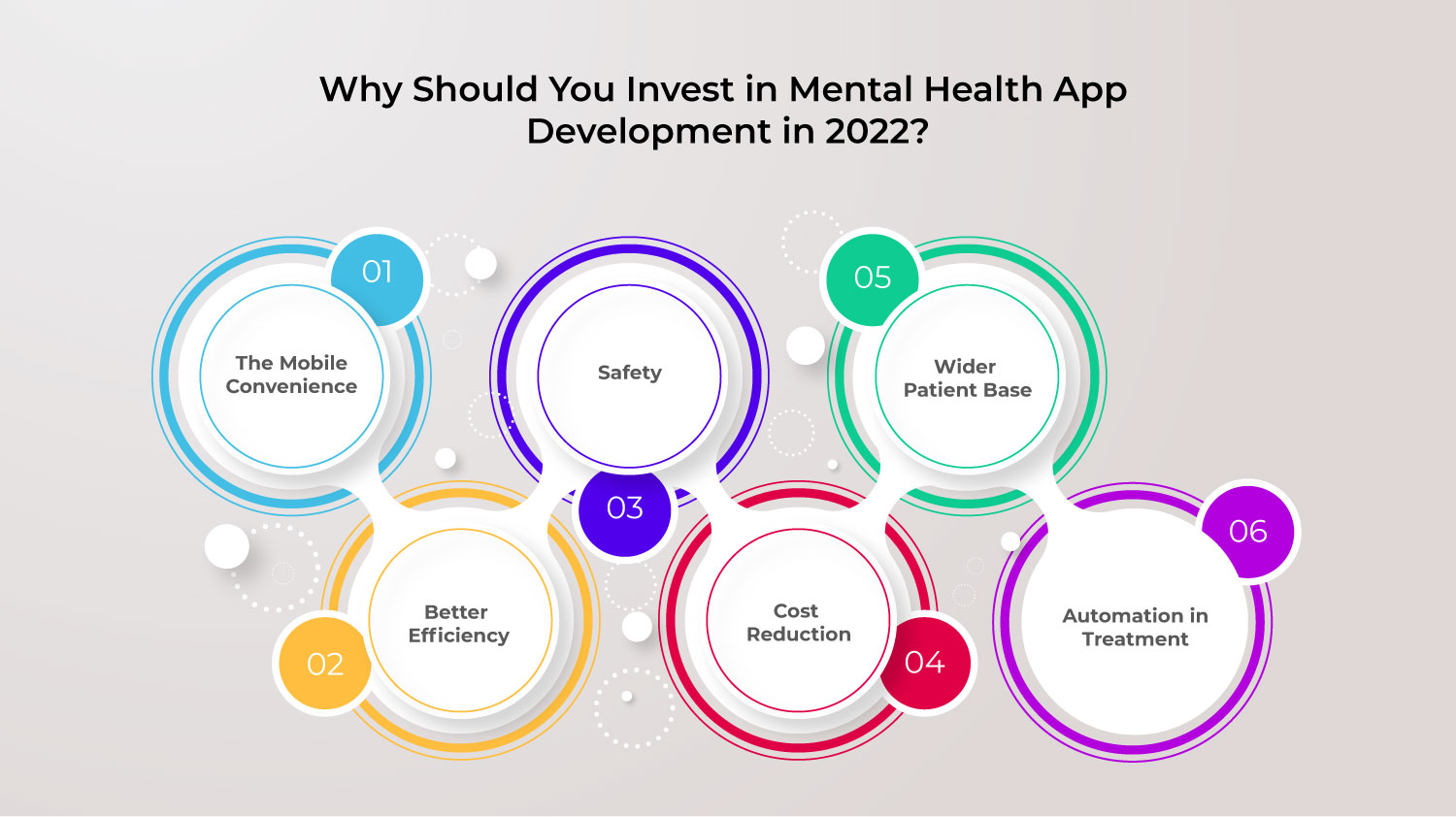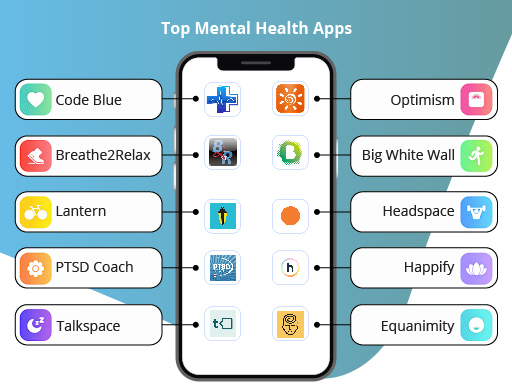In today’s digital age, technology has become an integral part of our daily lives, including our approach to mental health and wellness. Mental health apps have become increasingly popular in recent years, offering a convenient and accessible way for individuals to track, manage, and improve their mental well-being. In this blog post, we will explore the landscape of mental health apps, diving into the understanding of these apps, the benefits they offer, how to choose the right one for your needs, and the specific features to look for. We will also discuss the effectiveness and limitations of these apps, helping you navigate through the wide array of options available. Whether you’re new to mental health apps or looking to enhance your current usage, this post will provide valuable insights into this digital wellness landscape.
Understanding Mental Health Apps
Mental health apps are becoming increasingly popular as people seek more accessible ways to manage their mental well-being. These apps are designed to provide support, resources, and tools for individuals dealing with various mental health challenges. From stress and anxiety to depression and PTSD, there are a wide range of mental health apps available to cater to different needs.
What sets mental health apps apart from traditional therapy is the convenience and flexibility they offer. Users can access these apps from the comfort of their own homes, at any time of the day, making it easier to integrate mental health practices into their daily routines. This accessibility is especially beneficial for those who may not have access to in-person therapy or are unable to afford traditional mental health services.
It’s important to note that while mental health apps can offer valuable resources and support, they are not a replacement for professional treatment. The effectiveness of these apps varies from person to person, and they should be used as a supplement to, rather than a substitute for, traditional therapy and medical treatment. Additionally, not all mental health apps are created equal, and it’s essential for individuals to research and choose reputable apps that are backed by evidence-based practices.
By understanding the purpose, benefits, and limitations of mental health apps, individuals can make informed decisions about integrating these tools into their mental health care. With proper knowledge and guidance, mental health apps can be a valuable addition to one’s overall well-being and self-care practices.
Benefits of Using Mental Health Apps
One of the benefits of using mental health apps is the convenience they offer. With these apps, individuals can access support and resources right from their smartphones or other devices, making it easier to prioritize their mental health even on the go.
Another advantage is the availability of a wide range of features. Many mental health apps provide tools for tracking mood, setting reminders for self-care activities, accessing meditations and relaxation exercises, and even connecting with licensed professionals through virtual therapy sessions.
Using mental health apps can also help to reduce the stigma surrounding mental health. By making these resources more easily accessible and mainstream, individuals may feel more comfortable seeking and utilizing the help they need.
Additionally, some mental health apps offer personalized support and guidance based on individual needs and goals. This can help users feel more empowered and in control of their mental health journey.
Choosing the Right Mental Health App
When it comes to mental health apps, it’s important to choose the right one for your needs. With so many options available, it can be overwhelming to know where to start. The first step in choosing the right app is to assess your own mental health needs. Are you looking for an app that offers meditation and relaxation exercises, or do you need one that focuses on cognitive behavioral therapy? Understanding what you are looking to gain from the app will help narrow down your options.
After identifying your needs, it’s important to research different mental health apps available. Look for apps that have been developed by reputable mental health professionals or organizations. Reading reviews and testimonials from other users can also provide insight into the effectiveness of the app.
Another important factor to consider when choosing a mental health app is the user interface. The app should be easy to navigate and use, with clear instructions and a visually appealing design. This is important for ensuring that you will actually use the app regularly, rather than feeling frustrated or confused by it.
Finally, consider any additional features that are important to you. For example, some mental health apps offer mood tracking, journaling, or the ability to connect with a therapist or coach. These extra features can enhance your overall experience with the app and provide additional support for your mental health journey.
Features to Look for in Mental Health Apps
When choosing a mental health app, it’s important to carefully consider the features that are most beneficial for your specific needs. One of the most essential features to look for in a mental health app is the ability to track your mood and emotions. This can help you gain a better understanding of your mental health patterns and identify potential triggers for anxiety or depression.
Another important feature to consider is the availability of guided meditation or mindfulness exercises. These can be incredibly useful for managing stress and improving your overall mental well-being. Look for an app that offers a variety of meditation options, such as breathing exercises, body scans, and visualization techniques.
Additionally, it’s beneficial to choose a mental health app that provides access to a supportive community. This can include forums, support groups, or the option to connect with a mental health professional. Having a network of individuals who can offer encouragement and understanding can be invaluable on your mental health journey.
Lastly, consider the app’s privacy and security features. It’s crucial that your personal data and sensitive information are protected. Look for a mental health app that is transparent about its privacy policies and uses encryption to safeguard user data.
Effectiveness and Limitations of Mental Health Apps
Mental health apps have become increasingly popular in recent years as a convenient and accessible way for individuals to manage their mental well-being. These apps offer a wide range of features, including mindfulness exercises, mood tracking, and access to professional support. However, it is important to consider both the effectiveness and limitations of these apps when integrating them into a mental health care plan.
One of the key benefits of mental health apps is their ability to provide support and resources to individuals who may not have access to traditional therapy. These apps can offer immediate assistance during times of distress and can help users develop healthy coping mechanisms. Additionally, some apps use evidence-based practices, such as cognitive behavioral therapy, to help users manage symptoms of anxiety and depression.
Despite these benefits, it is important to recognize the limitations of mental health apps. While they can be a useful tool, they are not a substitute for professional care. Some apps may lack proper regulation and could potentially provide inaccurate information or ineffective treatment methods. Furthermore, not all individuals may benefit from using mental health apps, and some users may find that the apps exacerbate their symptoms or do not align with their treatment goals.
In conclusion, while mental health apps can be a valuable resource for individuals seeking support and self-management tools, it is essential to carefully evaluate their effectiveness and limitations. It is important to utilize these apps as part of a comprehensive mental health care plan that may include professional therapy, medication, and other forms of support.
Frequently Asked Questions
What are mental health apps?
Mental health apps are digital tools designed to support and improve mental well-being through various features, such as meditation exercises, mood tracking, and therapy sessions.
What are the benefits of using mental health apps?
Some benefits of using mental health apps include increased accessibility to mental health resources, personalized self-care, and the ability to track and manage mental well-being in real-time.
How can I choose the right mental health app for me?
When choosing a mental health app, consider factors such as your specific mental health needs, user interface preferences, evidence-based content, and the app’s compatibility with your devices.
What features should I look for in a mental health app?
Some key features to look for in a mental health app include mood tracking tools, guided meditation exercises, cognitive-behavioral therapy (CBT) resources, and secure data privacy practices.
What are the effectiveness and limitations of mental health apps?
While mental health apps can be effective in promoting self-care and symptom management, they may not be suitable for severe mental health conditions and should not replace professional treatment and support.






